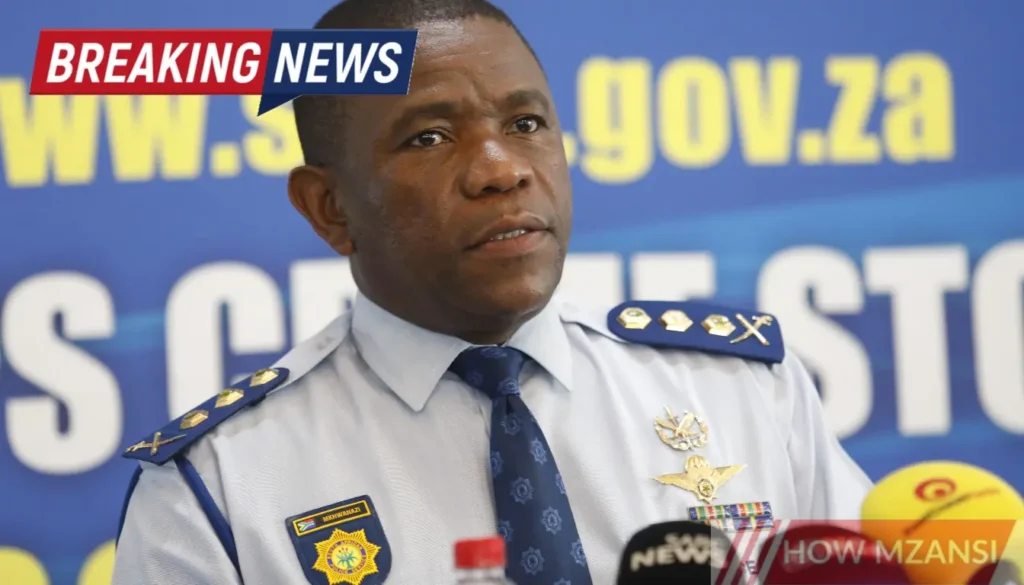KwaZulu-Natal Provincial Police Commissioner, Lieutenant General Nhlanhla Mkhwanazi, has dropped explosive revelations, alleging that both senior police officers and politicians are entangled in serious corruption and crime. Speaking at a press briefing on SAPS operational matters, Mkhwanazi claimed that dozens of politically sensitive investigations were taken out of his team’s hands before a special unit was shut down.
He stated that 121 cases once handled by the political killings task team were abruptly removed before the unit was disbanded. This, he says, happened just as the team was uncovering a large syndicate involving politicians, law enforcement officers, and prosecutors.
Mkhwanazi Points Finger at Top Officials
In his bombshell briefing, Mkhwanazi did not hold back. He accused Police Minister Senzo Mchunu of maintaining close communication with individuals linked to criminal networks. The commissioner hinted at a cover-up culture within SAPS, where known issues are being swept under the rug.
He further disclosed that SAPS had firearms linked to high-profile assassinations, including cases involving celebrities in Gauteng. Despite this, no action has been taken, raising serious concerns about intentional delays or sabotage from within.
These allegations have sent shockwaves through law enforcement and political circles, prompting fierce backlash. One of the individuals named by Mkhwanazi, Deputy National Police Commissioner Shadrack Sibiya, has denied the claims, calling them completely untrue.
“There is no truth whatsoever in whatever he said,” said Sibiya in response to Mkhwanazi’s public statement. His denial, however, has done little to silence the growing demand for an independent investigation into the SAPS and its leadership.
The briefing has ignited widespread debate over the collapse of accountability in law enforcement. With politicians now allegedly linked to crime syndicates, public confidence in the justice system is being severely tested.
Analysts say the timing of the task team’s disbandment, along with the removal of key cases, raises red flags. The question remains: why dismantle a unit at the peak of its breakthroughs?
Mkhwanazi’s decision to speak out may come at a personal cost, but it also marks a pivotal moment in the country’s fight against internal corruption. Calls are growing louder for President Cyril Ramaphosa to intervene and ensure that these serious claims are not buried under political convenience.
The nation now watches to see whether this latest storm will lead to real reform — or if the rot will continue to grow within the walls of South Africa’s policing structures.






